Chemistry Exam > Chemistry Notes > Chemistry mind maps for quick revision.
Chemistry mind maps for quick revision. PDF Download
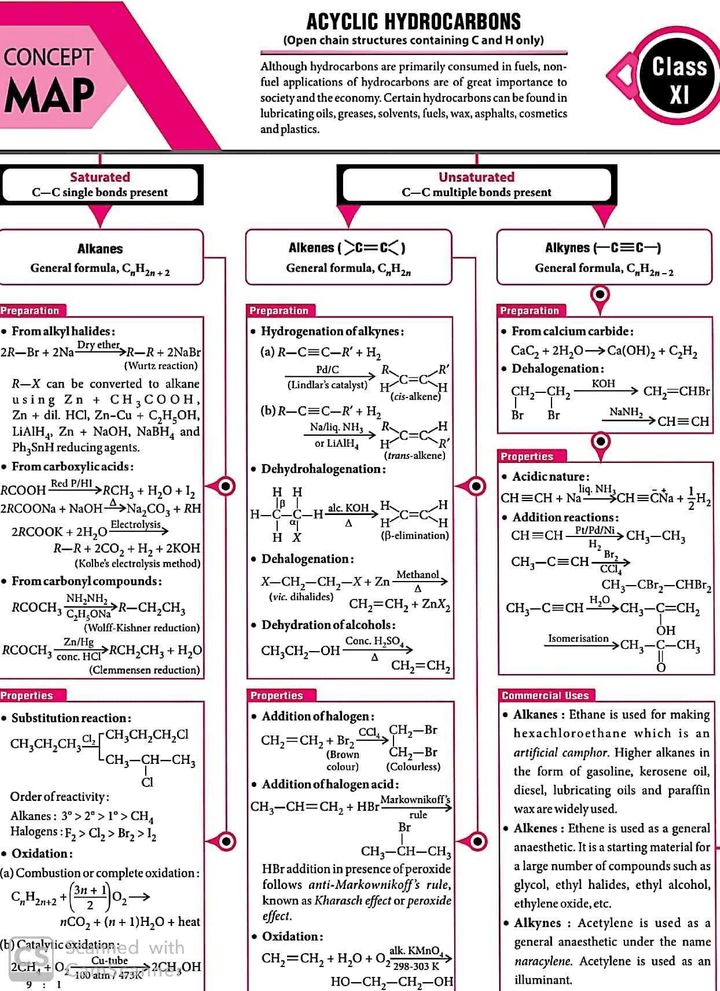
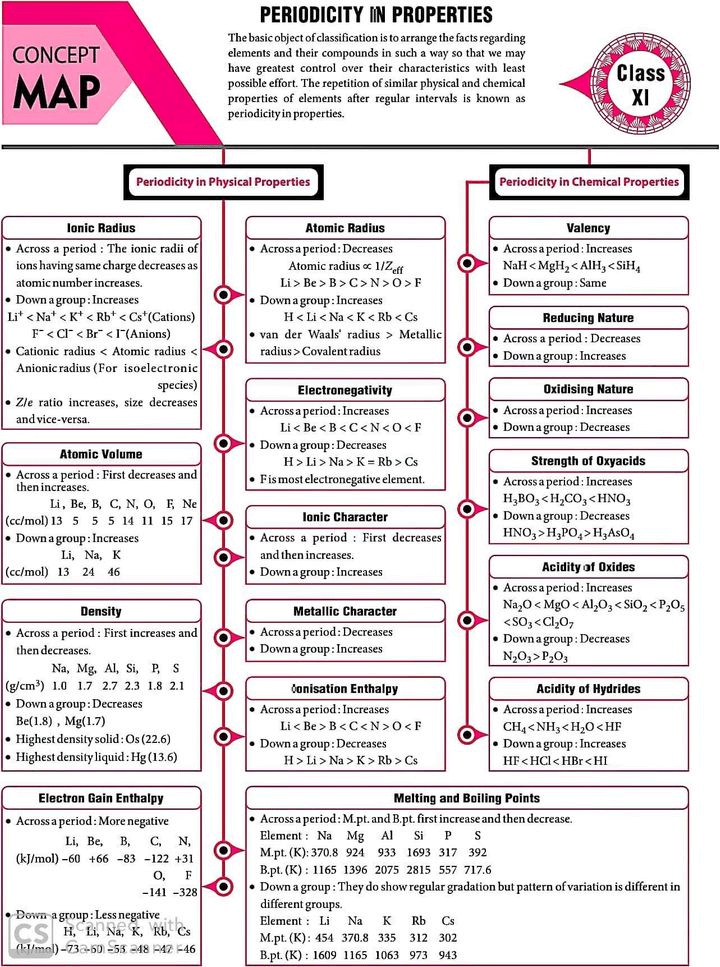
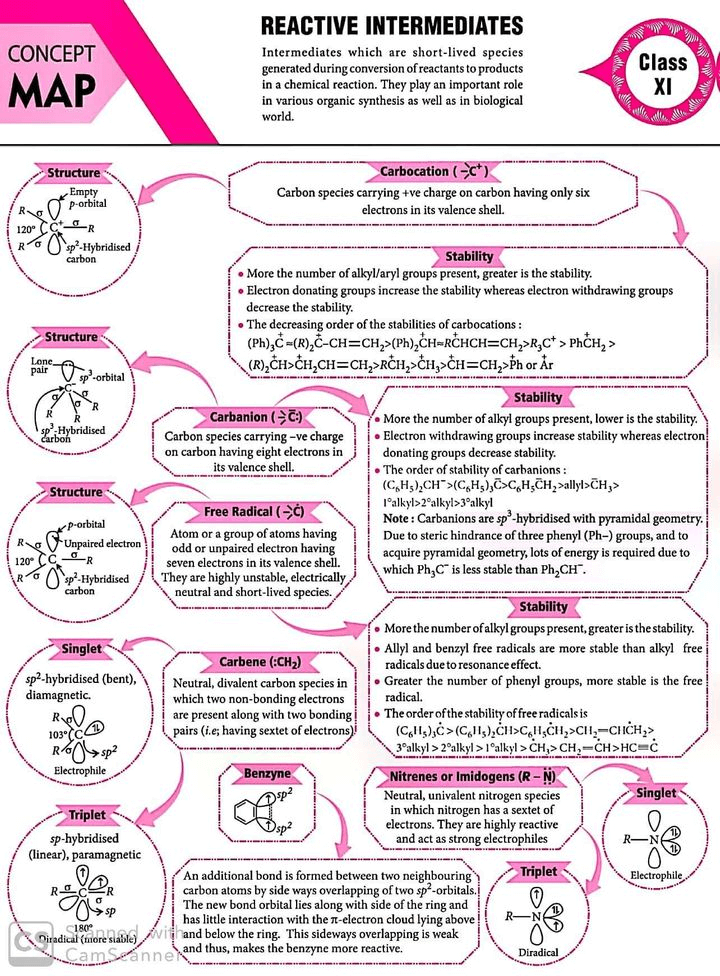
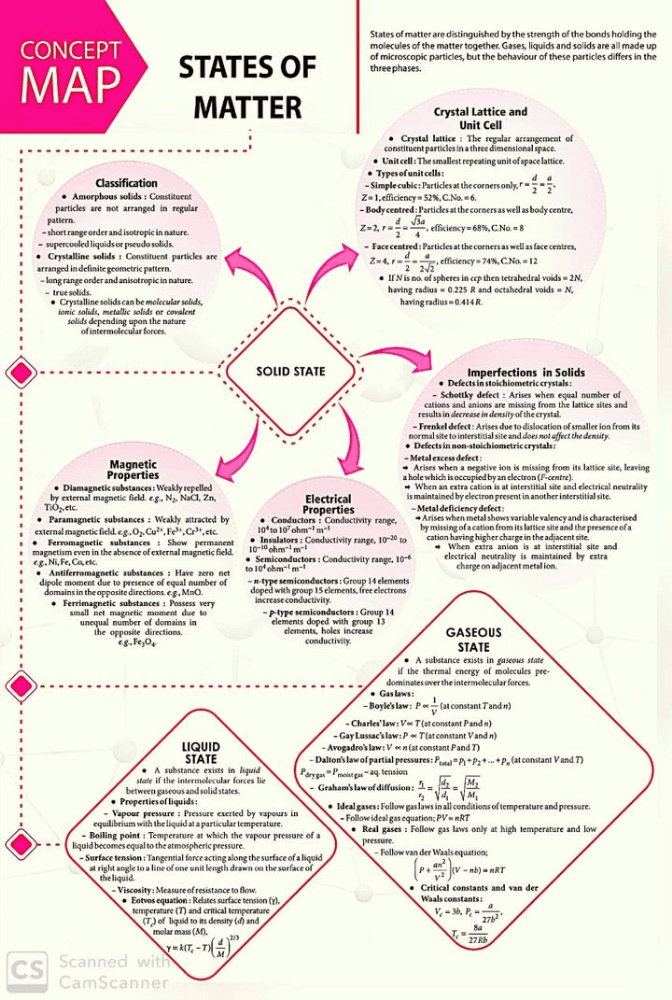
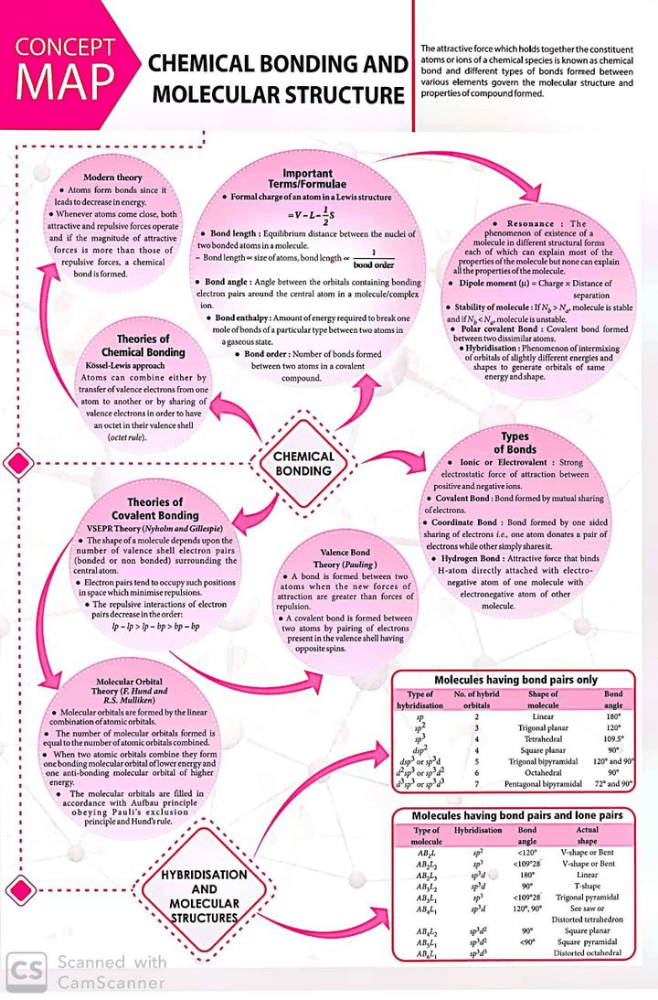
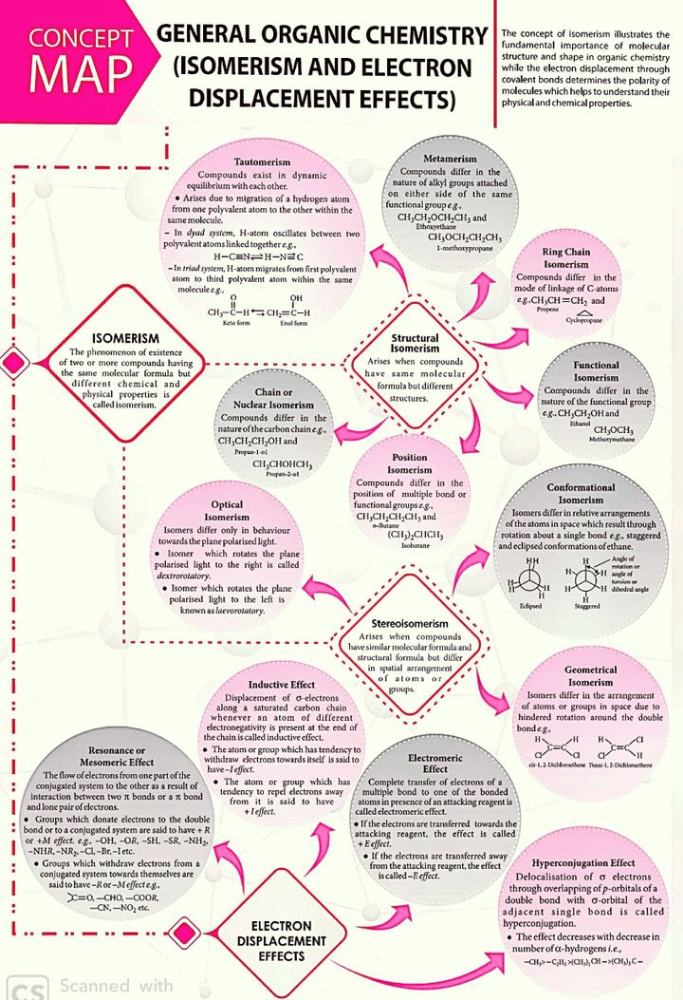 basic organic chemistry key points to be remembered.
basic organic chemistry key points to be remembered. Saturated and unsaturated compounds are distinguished by two reagents;
1) Bayer's reagents
2) Br2 in CCl4 solution
Alkaline KMnO4 solution is called Bayer's reagents.
All carbon compounds are covalent compounds.
Chromatography is used for the separation and purification of organic compounds.
Lassaigne' s test: used in detection of nitrogen, halogens and sulphur in the organic compounds.
The confirmation in which hydrogen atoms attached to two carbons are as far apart as possible "staggered confirmation".
The confirmation in which hydrogen atoms attached to two carbons are as closed together as possible is called "eclipsed confirmation".
The intermediate confirmation of staggered and eclipsed confirmation is called "skew confirmation".
FAQs on Chemistry mind maps for quick revision.
| 1. What are some examples of mind maps that can be used for quick revision in chemistry? |  |
Answer: Some examples of mind maps that can be used for quick revision in chemistry include:
- Periodic table mind map: This mind map visually organizes the elements of the periodic table, allowing students to easily identify element properties, trends, and relationships.
- Organic chemistry mind map: This mind map helps students understand the key concepts and reactions in organic chemistry, such as functional groups, reaction mechanisms, and naming conventions.
- Stoichiometry mind map: This mind map simplifies the calculations and relationships involved in stoichiometry, including mole ratios, limiting reactants, and percent yield.
- Bonding and molecular structure mind map: This mind map illustrates the different types of chemical bonds, molecular shapes, and intermolecular forces, aiding in the understanding of chemical bonding and molecular properties.
- Acids and bases mind map: This mind map summarizes the key concepts related to acids and bases, including pH, acid-base reactions, and common acid/base indicators.
| 2. How can mind maps help in quick revision for chemistry exams? |  |
Answer: Mind maps can be helpful in quick revision for chemistry exams because they:
- Visualize information: Mind maps present information in a visual and organized manner, making it easier for students to understand and remember key concepts.
- Aid in recall: By using colors, symbols, and connections, mind maps stimulate both the logical and creative sides of the brain, enhancing memory and recall of information.
- Simplify complex topics: Mind maps simplify complex topics by breaking them down into smaller, more manageable chunks, allowing students to grasp the main ideas and relationships more easily.
- Promote active learning: Creating mind maps requires active engagement with the material, helping students actively process and understand the content rather than passively reviewing it.
- Facilitate review and connections: Mind maps provide an overview of the entire subject, enabling students to review and make connections between different topics, which enhances understanding and retention.
| 3. Are there any online tools or software available for creating chemistry mind maps? |  |
Answer: Yes, there are several online tools and software available for creating chemistry mind maps. Some popular options include:
- MindMeister: This online mind mapping tool allows users to create, collaborate, and share mind maps. It offers various features such as adding images, videos, and links, as well as real-time collaboration.
- XMind: XMind is a professional mind mapping software that offers both a free version and a paid version with more advanced features. It provides a wide range of templates, styles, and export options.
- Coggle: Coggle is a simple and intuitive online mind mapping tool that allows users to create and collaborate on mind maps. It offers real-time collaboration, sharing options, and the ability to add images and links.
- Lucidchart: Lucidchart is a web-based diagramming and mind mapping tool that offers a drag-and-drop interface, collaboration features, and various templates for creating chemistry mind maps.
- MindNode: MindNode is a mind mapping app available for Mac and iOS devices. It allows users to create visually appealing mind maps with ease and offers features such as iCloud sync and export options.
| 4. How can mind maps be effectively used for chemistry revision? |  |
Answer: To effectively use mind maps for chemistry revision, follow these tips:
- Start with a clear goal: Define the specific topic or concept you want to revise and create a central idea or question as the focus of your mind map.
- Use keywords and images: Instead of writing long sentences, use keywords and images to represent key ideas and concepts. This makes the mind map more visually engaging and aids in memory recall.
- Organize information hierarchically: Arrange the information in a hierarchical structure, with main branches representing major topics and sub-branches representing supporting details or subtopics.
- Use colors and symbols: Incorporate colors and symbols to represent different categories or to highlight important information. This helps to visually differentiate and categorize the content.
- Make connections: Draw connecting lines or arrows between related ideas to show relationships and connections between different concepts. This helps to reinforce understanding and aids in retrieval.
- Review and practice regularly: Regularly review and practice using the mind maps to reinforce the learned information. This can be done through self-quizzing, summarizing the content, or explaining the concepts to others.
| 5. Can mind maps be used for subjects other than chemistry? |  |
Answer: Yes, mind maps can be used for subjects other than chemistry. Mind maps are a versatile learning tool that can be applied to various subjects and topics. They can be used in subjects like biology, physics, mathematics, literature, history, and even in non-academic areas such as brainstorming ideas, planning projects, or organizing personal goals. The key is to adapt the structure and content of the mind map according to the specific subject or topic, highlighting the main ideas, key concepts, and relationships relevant to that subject.
Related Searches




















